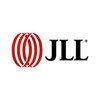Hotels investors hold as trading performance tapers | Jones Lang LaSalle Survey Shows

SYDNEY, According to Jones Lang LaSalle Hotels’ recently released Hotel Investor Sentiment Survey (HISS), the majority of hotel investors signalled their intention to hold assets over the next six months, against a backdrop of uncertainty. With only a limited number of transactions occurring in Australia throughout 2008, it has also become increasingly difficult to call exactly what level pricing has reached.
“Investor sentiment points to a continuation of the softening trend, which has become apparent for initial yields over the last six months,” said Mr David Gibson, CEO Asia Pacific, Jones Lang LaSalle Hotels. He added, “2009 will create good buying opportunities for hotel investors as we go through the bottom of the cycle.”
Jones Lang LaSalle Hotels’ most recent survey was conducted during October 2008 at what will in all likelihood turn out to represent the nadir of sentiment with the survey ‘live’ while some of the most significant financial events in generations were occurring. “As a result sentiment for hotel trading performance has recorded the most marked turnaround since the survey began in 2000,” said Mr Gibson. He added, “While there may be an element of timing-related overreaction, the swing in sentiment also reflects a region (Asia Pacific) which has gone from being in economic overdrive to first gear.”
“Investigating potential investment opportunities will therefore take longer as investors need to regain confidence and make a call across a range of impacts,” said Mr Craig Collins, Managing Director - Investment Sales, Jones Lang LaSalle Hotels.
One positive aspect, however, is the relatively benign supply outlook in most markets. Construction projects may face delays and proposed projects are being put on hold as projects find it harder to secure development funding in the current restricted credit environment. Reflecting this, build sentiment across Asia Pacific recorded a notable decline.
Trading performance expectations
With less credit available and a reduction in global economic growth, consumption is expected to slow and demand for hotel accommodation will soften. “Leisure and MICE segments are expected to experience the most marked slowdown, along with business travel where markets or hotels are reliant on the financial sector,” said Mr Gibson. However, “Domestic tourism is expected to benefit from the lower Australian dollar, terrorism activity in other destinations, as well as lower petrol prices and interest rates.”
Sentiment across the major international gateways is less bearish for the short term and markedly more positive for the medium term indicating that global cities, such as Sydney, are expected to be the primary drivers of economic recovery. “Sentiment suggests that adverse impacts are expected to be short-lived, albeit with a broad spread of sentiment across the region,” said Mr Collins.
Investor sentiment for short term trading is least negative for Perth, Brisbane and Melbourne. Brisbane and Perth have been the strongest performing Australian hotel markets in recent times. “While the commodities boom has slowed, new supply is very limited and therefore we expect RevPAR growth to continue albeit at a slower rate in most markets,” said Mr Gibson.
Investment yield requirements
Investor expectations for both leveraged IRRs and initial yields across Asia Pacific have increased compared to our last survey in June 2008, reflective of the softer short term trading outlook and global economic uncertainty rather than a protracted decline in sentiment for Asia Pacific hotel markets. Expectations for leveraged IRRs now average 19.1% (+ 70 basis points) and initial yields 9.1% (+ 90 basis points). “Interestingly, expectations for leveraged IRRs retracted most sharply across Australia and New Zealand (+ 150 basis points) compared to Asia (+ 30 basis points),” said Mr Collins. He added, “Expectations are now at the highest level since we started the survey in 2000 and despite swift and decisive action by the Reserve Bank of Australia (RBA) over the last months.”
“Buyers with a short term or initial yield focus will struggle to do deals, whereas investors with a long term outlook or those who are prepared to base acquisition sums on last year’s financials are more likely to secure assets at good prices as seen in late 2001 and 2002,” said Mr Collins.
Trading markets will bounce back and the cost of capital will reduce.
Investment intentions
Having spiked upwards in June 2008, buy sentiment across Asia Pacific declined significantly from 43.9% to 29.4% - a level which is just below the long term average. Build sentiment has also decreased, to a lesser extent, from 24.1% to 16.4%, reflecting the current restrictions in credit markets. “Offsetting these declines was a significant upswing in hold and sell sentiment, increasing to 41.6% and 12.6% respectively,” said Mr Gibson.
Isolating the region’s global cities once again reaffirms the ‘flight to quality’ mantra with strong buy sentiment ranging from 38.6% in Singapore to 32.8% in Sydney.
While all regions recorded a notable change in sentiment, the majority of investors favour a hold strategy in Asia Pacific and the Americas and a buy strategy in Europe, Middles East and Africa (EMEA).
Craig McCarthy
+61 2 9220 8786
JLL
